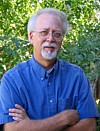
Alexis de Tocqueville wrote a two volume appraisal of these United States called
Democracy in America. The first was published in 1835 and the second five years later. His initial 1831 venture to these shores was accompanied by a desire to assess the country's prison system. His final tome covered far more and has become a classic description of early America and Americans. He visited 17 states and traveled thousands of miles, always intrigued by the culture and politics of such a unique people.
His thoughts on the American's dedication to a God of blessing paint a much different picture than the America he would see today:
"In the United States, on the seventh day of every week, the trading and working life of the nation seems suspended; all noises cease; a deep tranquillity, say rather the solemn calm of meditation, succeeds the turmoil of the week, and the soul resumes possession and contemplation of itself. Upon this day the marts of traffic are deserted; every member of the community, accompanied by his children, goes to church, where he listens to strange language which would seem unsuited to his ear. He is told of the countless evils caused by pride and covetousness; he is reminded of the necessity of checking his desires, of the finer pleasures which belong to virtue alone, and of the true happiness which attends it. On his return home, he does not turn to the ledgers of his calling, but he opens the book of Holy Scripture; there he meets with the sublime or affecting descriptions of the greatness and goodness of the Creator, of the infinite magnificence of the handiwork of God, of the lofty destinies of man, of his duties, and of his immortal privileges. Thus it is that the American at times steals an hour from himself; and laying aside for a while the petty passions which agitate his life, and the ephemeral interests which engross it, he strays at once into an ideal world, where all is great, eternal, and pure.
"I have endeavoured to point out in another part of this work the causes to which the maintenance of the political institutions of the Americans is attributable; and religion appeared to be one of the most prominent among them. I am now treating of the Americans in an individual capacity, and I again observe that religion is not less useful to each citizen than to the whole State. The Americans show, by their practice, that they feel the high necessity of imparting morality to democratic communities by means of religion. What they think of themselves in this respect is a truth of which every democratic nation ought to be thoroughly persuaded. . .
"What means then remain in the hands of constituted authorities to bring men back to spiritual opinions, or to hold them fast to the religion by which those opinions are suggested? My answer will do me harm in the eyes of politicians. I believe that the sole effectual means which governments can employ in order to have the doctrine of the immortality of the soul duly respected, is ever to act as if they believed in it themselves; and I think that it is only by scrupulous conformity to religious morality in great affairs that they can hope to teach the community at large to know, to love, and to observe it in the lesser concerns of life."
If you had trouble reading those three paragraphs, I suggest you go back over them without hurrying.
May God help America present to assure America future.
 The season is finally changing from freezing cold to mildly cold with rain mixed in here and there. Feathers are changing color. Grass is starting to grow again. Time to plant some flowers and enjoy some sunshine after being house-bound for a few months. The yard is a wreck and will need some major mending.
The season is finally changing from freezing cold to mildly cold with rain mixed in here and there. Feathers are changing color. Grass is starting to grow again. Time to plant some flowers and enjoy some sunshine after being house-bound for a few months. The yard is a wreck and will need some major mending.

